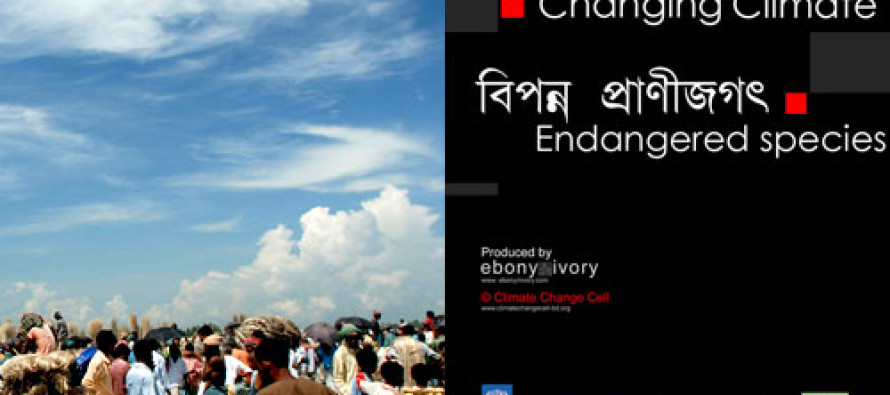Climate change battle limps for lack of fund writes Ashfaq Wares Khan

Despite being at the forefront of countries affected by climate change, Bangladesh has received only $10 million in foreign aid over the past decade, even as recent donor estimates put future climate change adaptation bill for the country around $4 billion.
Meanwhile, a climate change research centre and a government climate change data centre are in the pipeline to allow Bangladesh to use better models and data for mainstreaming climate change adaptation into government projects and to attract funds for long term adaptation plans.
Although some NGO officials claim that climate change specific funding might have been much lower than $10 million in the last decade, government records obtained by The Daily Star show that climate change adaptation fund to Bangladesh has been between $9 million to $10 million since 1996.
Experts say that Bangladesh has failed to attract funds largely due to its failure to absorb and implement the funds, and for a lack of accountability.
But a donor country official, working with the research centre proposals, told The Daily Star that Bangladesh has also failed to ‘voice enough concerns at the global level, and have not managed knowledge about climate change well enough to make the country’s case overseas’.
"The country has been unable to tap into massive global climate change funds because of a lack of data about the country," the official said.
Official records show only one out of the fifteen planned projects under the National Adaptation Programme of Action (Napa) received funds, while none of the projects under Global Environment Facility (GEF) has yet been implemented. One GEF project, on forestation, has already been withdrawn, according to sources.
Atiq Rahman, executive director of the Bangladesh Centre for Advanced Studies, said there should be new approaches and new funding to help strengthen not only adaptation, but also for building capacity to fill the shortage of climate change experts.
"There are new challenges, such as developing new climate change experts, and those require new approaches and instruments," said Atiq while speaking to The Daily Star yesterday.
A donor country official, working with climate change, said future project funding should also come in forms of grants rather than loans to reduce the burden of repayment.
In 2006, 32 donor countries pledged $3.13 billion to fund projects between 2006 and 2010.
GEF allocates and disburses about $250 million dollars a year to projects for developing energy efficiency, renewable energies, and sustainable transportation, as the financial mechanism of the Climate Convention.
Bangladesh could also take advantage of two special funds under the UN Framework Convention on Climate Change (UNFCCC) — the Least Developed Countries Fund, and the Special Climate Change Fund.
Meanwhile, the International Institute for Environment and Development (IIED), and the Bangladesh Centre for Advanced Studies (BCAS) signed a memorandum of understanding with International University Bangladesh (IUB) to set up a global research institute here.
The International Centre for Climate and Development would be the first global centre of excellence for research on climate change in Bangladesh with international expertise, which would raise its own international funds.
While, the government is planning to create a centre which would provide project models and the data required to mainstream climate change adaptation into government projects.
The project proposes to create a small interactive ‘knowledge hub’ for research, and to cultivate and disseminate information about climate change in Bangladesh.
AKM Kamal Uddin of the Department of Envionrment (DoE) told The Daily Star that the government’s proposal for a climate change research centre seeks to support mainstreaming of climate change adaptation into all government projects.
"The proposals were born from the idea that a centre is required to support government departments and agencies to continue development in a climate resilient manner," said Kamal.
Mainstreaming climate change adaptation would compel all government projects to include long term climate change possibilities and to use directives from the proposed centres in planning infrastructure, health, and education projects.
But, there is a debate regarding the two separate proposals, as one donor country official, closely working with the proposals, said only one such centre would be feasible as their mandates would overlap, requiring significant funding.
Atiq Rahman, however, told The Daily Star, "You have to think big and you have to think on multiple terms. So there is no problem in having more than one centre catering to different aspects of climate change here."
A decision on the government centre is scheduled to be finalised within two months, according to government sources.
original source daily star


